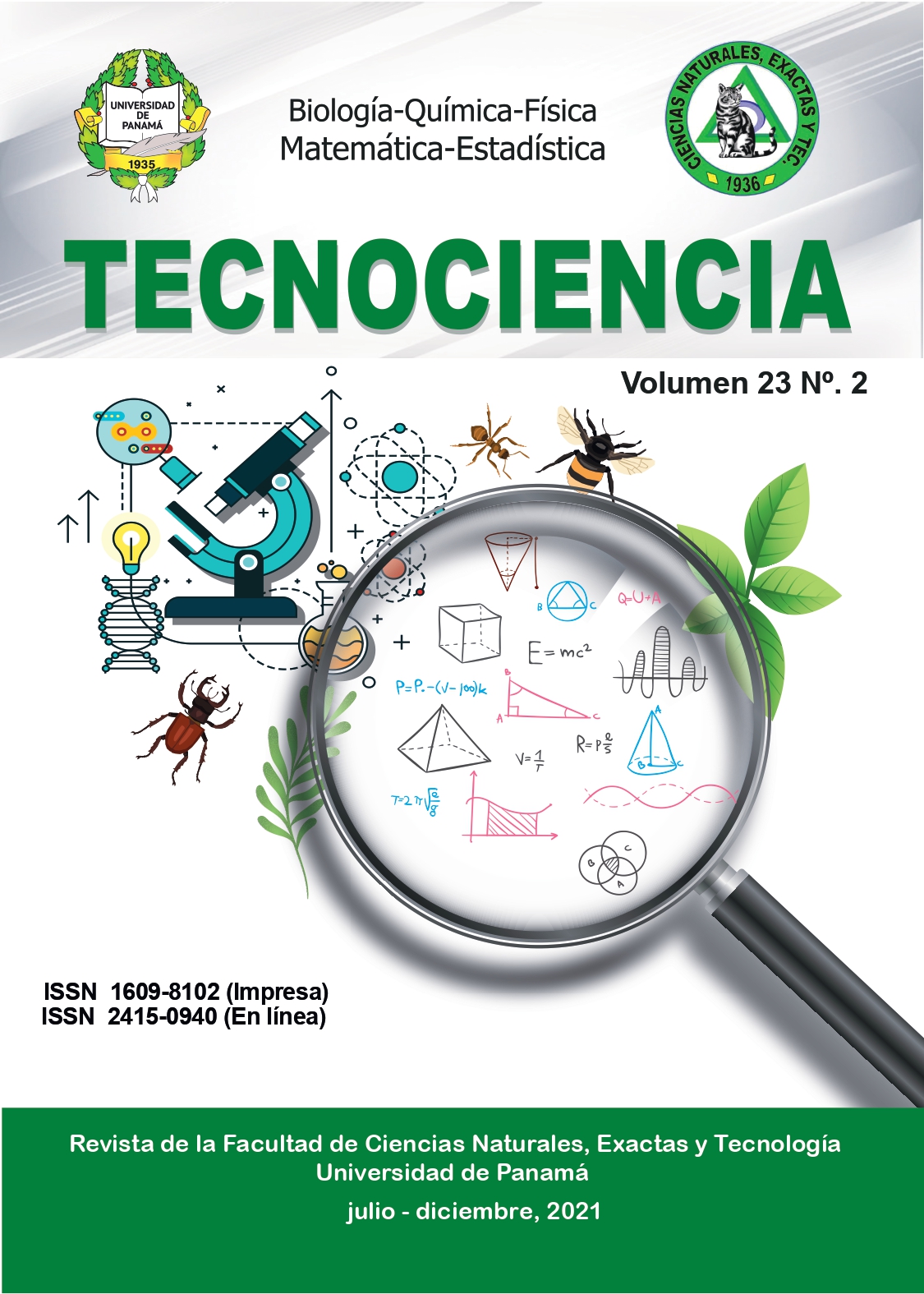References
Abele, L.G. & Kim, W. 1989. The Decapod Crustaceans of the Panama Canal. Smithsonian Contributions to Zoology. 482:1-50.
ACP. 2020. This is the Canal, last update 22-Feb-2013 in http://www.pancanal.com/eng/acp/asi-es-el-canal.html. Accessed on June 5th, 2020.
Bennett, I.E. & Hammond, J.H. 1915. History of the Panama Canal: Its construction and builders. Washington, DC: Historical Publishing Company.
Coan, E.V. & Valentich-Scott, P. 2012. Bivalve seashells of tropical west America (Vol. 1258). Santa Barbara, CA: Santa Barbara Museum of Natural History.
Collin, R. 2005. Development, phylogeny, and taxonomy of Bostrycapulus (Caenogastropoda: Calyptraeidae), an ancient cryptic radiation. Zoological Journal of the Linnean Society, 144(1), 75-101.
Córdoba, D.E., Avilés, M.C., Valdés, I. & Días, M. 2010. Diversidad de moluscos (Bivalvos y Gasterópodos), que sirven como fuente de alimento en isla Colón, provincia de Bocas del Toro, Panamá. Tecnociencia. 12(1): 23-33.
deMaintenon, M.J. 2014. Taxonomic revision of the species of Parvanachis Radwin, 1968 (Gastropoda: Columbellidae) from the Gulf of Panama. Zootaxa, 3753(3), 201-225.
Farani, G.L., Nogueira, M.M., Johnsson, R. & Neves, E. 2015. The salt tolerance of the freshwater snail Melanoides tuberculata (Mollusca, Gastropoda), a bioinvader gastropod. Pan-American Journal of Aquatic Sciences. 10(3): 212-221.
Garcés, B.H.A. & García, R.J. 2003a. Caracterizacion de la infauna bentónica asociada al proyecto de profundizacion del cauce de navegación del Canal de Panamá. Tercer informe de avance. CCML para ACP. Unidad de Calidad del Agua, Balboa, Panamá, 26 p.
Garcés, B.H.A. & García, R.J. 2003b. Caracterizacion de la infauna bentónica asociada al proyecto de profundizacion del cauce de navegación del Canal de Panamá. Cuarto informe de avance. CCML para ACP. Unidad de Calidad del Agua, Balboa, Panamá, 26 p.
Garcés, B.H.A. & García, R.J 2004. Colecta y análisis de muestras biológicas de los lagos Gatún y Miraflores. No. 3: Bentos. Centro de Ciencias del Mar y Limnología (CCML) FACNET, Universidad de Panamá
Hildebrand, S. F. (1939). The Panama Canal as a passageway for fishes, with lists and remarks on the fishes and invertebrates. Zoologica. 24(3): 15-45.
Jones, M. L., & Dawson, C. E. (1973). Salinity-temperature profiles in the Panama Canal locks. Marine Biology, 21(2), 86-90.
Jones, M.L. & Rützler, K. 1975. Invertebrates of the upper chamber, Gatún Locks, Panama Canal, with emphasis on Trochospongilla leidii (Porifera). Marine Biology. 33(1): 57-66.
Keen, A.M. 1958. Seashells of tropical west America: marine mollusks from Lower California to Columbia. Stanford University Press.
Lopez-Rojas, I.V., Flores-Garza, R., Flores-Rodriguez, P., Torreblanca-Ramirez, C. & Garcia-Ibanez, S. 2017. The Bivalvia Class of rocky sites in Priority Marine Regions of Guerrero, Mexico: species richness, abundance, and distribution. Hidrobiologica. 27(1): 69-86.
McCosker, J.E. & Dawson, C.E. 1975. Biotic passage through the Panama Canal, with particular reference to fishes. Marine Biology. 30: 343-351.
Menzies, R.J. 1968. Transport of marine life between oceans through the Panama Canal. Nature 220: 802-3.
Morton, B. 1981. The biology and functional morphology of Mytilopsis sallei (Recluz)(Bivalvia: Dreissenacea) fouling Visakhapatnam Harbour, Andhra Pradesh, India. Journal of Molluscan Studies. 47(1): 25-42.
Puyana, M., Prato, J. & Díaz, J.M. 2012. Mytella charruana (d'Orbigny)(Mollusca: Bivalvia: Mytilidae) in Cartagena Bay, Colombia. Boletín de Investigaciones Marinas y Costeras-INVEMAR. 41(1): 213-217.
Raines, B.K. 2020. A Rosetta Stone for eastern Pacific Caecidae (Gastropoda: Caenogastropoda). Zootaxa, 4827(1), 1-146.
Reid, D. G., Dyal, P., & Williams, S. T. 2010. Global diversification of mangrove fauna: a molecular phylogeny of Littoraria (Gastropoda: Littorinidae). Molecular Phylogenetics and Evolution, 55(1), 185-201.
Roche, D.G. & Torchin, M.E. 2007. Established population of the North American Harris mud crab, Rhithropanopeus harrisii (Gould 1841) (Crustacea: Brachyura: Xanthidae) in the Panama Canal. Aquatic Invasions. 2(3): 155-161.
Rosewater, J. 1975a. Mollusks of Gatun Locks, Panama Canal. Bull. Am. Malacological Union. 1974: 42-43.
Rosewater, J. 1975b. Some results of the national museum of natural history Smithsonian tropical research institute survey of Panama 1971-1075. Bull. Am. Malacol. 1975: 48-50.
Sarà, G., Romano, C., Widdows, J., & Staff, F. J. (2008). Effect of salinity and temperature on feeding physiology and scope for growth of an invasive species (Brachidontes pharaonis -Mollusca: Bivalvia) within the Mediterranean Sea. Journal of Experimental Marine Biology and Ecology, 363(1-2), 130-136.
Tan, K.S. & Morton, B. 2006. The invasive caribbean bivalve Mytilopsis sallei (Dreissenidae) introduced to Singapore and Johor Bahru, Malaysia. Raffles Bulletin of Zoology. 54(2): 429-434.
Tejera, N., Cordoba, D. & Avilez, M. 2016. Moluscos intermareales del distrito de Aguadulce: guía de campo. Imprenta Color Group Internacional Panama. 216 paginas
Toole, T.W. 1985. Results of Benthic Macroinvertebrate sample analysis on Gatun Lake (PCZ) Samples collected in March-May 1985. Laboratory results report. Appendix I, s.n. En PCC. 1987. Environmental Report: Panama Canal Gaillard Cut widening feasibility study. Vol I & II (Appendix). Panama Canal Commission, Panama. 94 p.
Willan, R.C., Russell, B.C., Murfet, N.B., Moore, K.L., McEnnulty, F.R., Horner, S.K. ... & Bourke, S.T. 2000. Outbreak of Mytilopsis sallei (Recluz, 1849) (Bivalvia: Dreissenidae) in Australia. Molluscan Research. 20(2): 25-30.
WoRMS Editorial Board. 2020. World Register of Marine Species. Available from https://www.marinespecies.org at VLIZ. Accessed 2020-09-15. doi:10.14284/170

